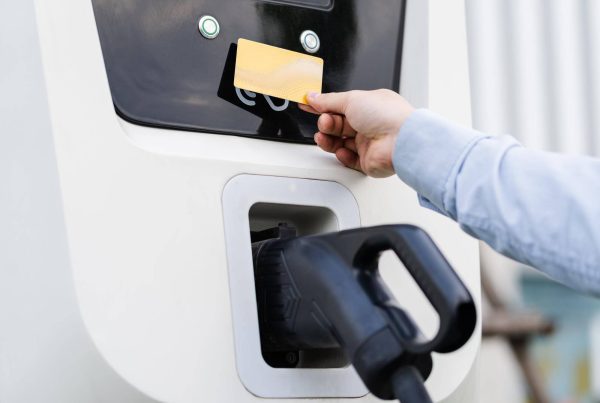Imagine if your mobile phone only charged at peak electricity rates, regardless of when cheaper power was available. That’s essentially how many electric vehicles (EVs) charge today—but that’s all changing thanks to new UK legislation designed to make EV charging both smarter and more affordable.
What is smart charging?
Smart charging allows your EV to automatically charge when electricity is cheapest and most abundant. Think of it like having a savvy personal assistant who ensures you fill up your car when fuel prices are at their lowest, except it happens automatically while you sleep.
The Money-Saving Benefits
According to research highlighted in the government’s Electric Vehicle Smart Charging Action Plan, some EV drivers could save between £900 and £1,000 per year on their household electricity bills through smart charging. For example, Lauren, a typical commuter driving 18,400 miles annually who charges her car overnight using off-peak rates, could achieve these significant savings compared to standard tariff charging.

How the New Laws Help
Since July 2022, all new home and workplace EV chargers sold in Great Britain must have smart charging capability. These chargers come preset to avoid peak hours, though drivers can override this if needed. It’s like having a default setting that saves you money unless you specifically choose otherwise.
Making Your Car Work for You
The most exciting development is the potential for “Vehicle-to-X” (V2X) technology, where your car’s battery can actually supply power back to your home or the grid when electricity prices are high. Think of your EV as a power bank on wheels—storing cheap electricity when it’s abundant and using it or even selling it back when prices peak.
The Bigger Picture
These changes aren’t just about individual savings. According to government analysis in the EV Infrastructure Strategy, by 2030 there could be up to 10 million EVs on UK roads. Smart charging helps ensure our electricity grid can handle this increased demand without requiring expensive infrastructure upgrades that would ultimately be passed on to consumers.
Looking Ahead
The government’s vision is for smart charging to become the norm at homes and workplaces by 2025, with similar capabilities being rolled out to long-stay public charging locations in the late 2020s. This systematic approach helps ensure that as more Britons switch to electric vehicles, they can do so in a way that’s both cost-effective for them and sustainable for the nation’s power grid.
Whether you already own an EV or are considering making the switch, these new laws help ensure that charging your car won’t break the bank—and might even help you save money while supporting a greener future.
